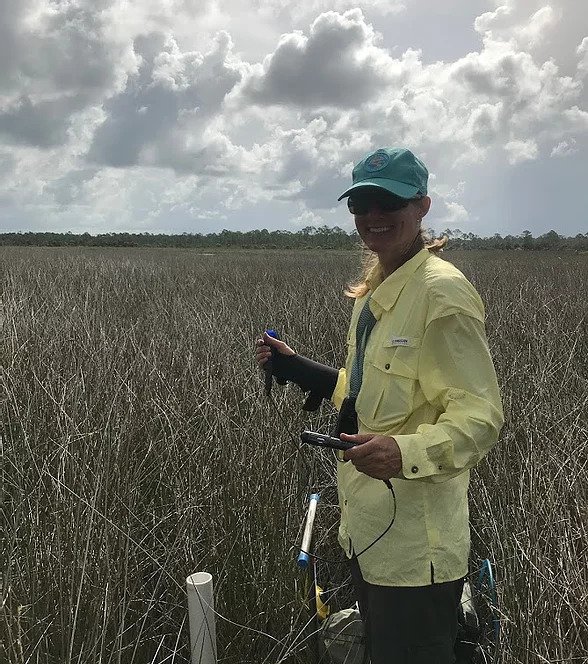The Student Section’s Delegate Program is an effort to cultivate the next generation of Society of Wetland Scientists (SWS) leaders by engaging students in a microvolunteering and leadership initiative. Delegates work hand in hand with members of the Section’s Board of Directors, depending on their selected projects. Through the Program, they get opportunities to collaborate with other leaders in the Society and its partners. Delegates will play a critical role in transitioning the Society into a more inclusive and international scientific entity. More information about the Delegate Program can be found HERE.
Jorge Velasco Martinez
Instagram: jorge.biologo | Twitter: @jvelascobio
Jorge is a biologist dedicated to terrestrial and aquatic entomology. He is a principal investigator at CEDIER, and works as an external consultant in environmental and biological evaluations for mining projects, reforestation projects and high-altitude peat bog compensation plans.
He thinks wetlands are very curious ecosystems since they have a diversity to discover. He especially loves that when you look at the aquatic communities, you can interpret the ecological state of that ecosystem, where each interaction is connected with some insect.
Every biologist always admires nature and sees it in a different way. For Jorge, it is always good to relax. He likes to practice some chords with the guitar and piano, or play with his pets. He recently began learning photography with a semi-professional camera. Jorge also enjoys taking care of his little plants and seeing what insects they bring. He has a phrase that he always uses: “if you don't get dirty, it's because you didn't do it.” Getting dirty in the field doing what you like the most is the most comforting thing there is.
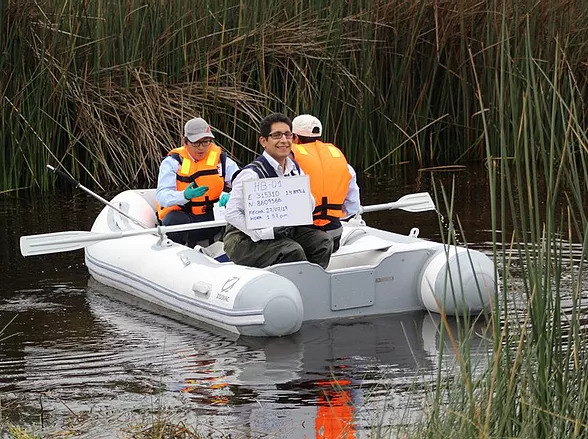
Wendy Ampuero Reyes
Instagram: wendy.ampueroreyes | Twitter: @wendolyn07
Wendy is from Peru. She has a Bachelors in Environmental Engineering from Universidad Científica del Sur from her hometown. Currently, she is a second-year M.Sc. student in the Department of Geography at McGill University. Her research is focused on blue carbon stocks in coastal wetlands in Canada and Peru.
To her, wetlands are essential because they provide a variety of ecosystem services not only for the local people but also for the regional and global population, which leads to human well-being as well as the conservation of marine biodiversity and ocean-dependent economies. She is especially passionate about coastal wetlands because they are known as natural climate solutions to mitigate climate change.
She loves the beach, hiking and travelling. Once, she swam with sea turtles in the Pacific Ocean. #peruvian #research #CoastalWetlands #bluecarbon
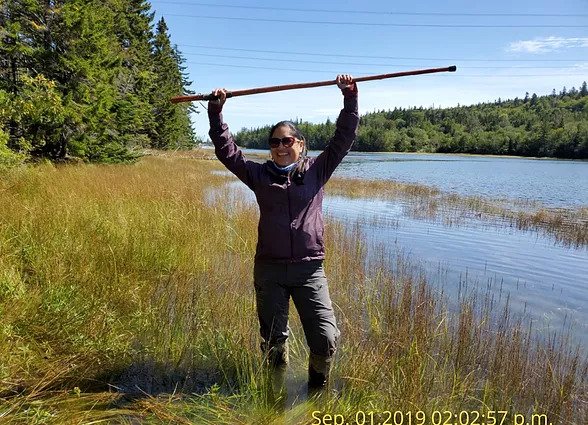
Lilian Massiel Rosas Rivera
Instagram: lilianralcuadrado
Lilian is an early career environmental engineer from Peru who considers herself a total fan of the dancing rivers, kelp forests and has a special love for wetlands. In the last 6 years she has been participating actively in some volunteer programs aiming to protect these wonderful ecosystems using environmental education as her main tool. Thanks to this experience, last year she had the opportunity to be part of an Andean wetlands restoration project and now she is part of The Guardians of the Wetlands.
For Lilian, wetlands are like her second home. She cannot imagine herself without being associated with this beautiful ecosystem and the cultural aspects that involve them. Wetlands not only provide food, water purification and other ecosystem services, but hold many stories of people who live around and would give their lives to protect them. She also believes that wetlands have taught her a lot - and she is not talking only about the scientific aspects - but more importantly about the way this ecosystem helped her to grow as a human being. For instance, the coastal wetlands taught her how to be resilient, the andean wetlands helped her to become stronger and the rainforest´s wetlands made her realize how unique we are.
She loves to spend her free time swimming in open waters with her sister. One of the coolest things that ever happened to her while practicing was to swim with dolphins in the middle of the sea! It was her first time swimming that far into the ocean and she was so afraid because she couldn’t see anything but water around her. Suddenly, she saw those incredible creatures and she recalls feeling so small yet so glad to be there. Back on land, a hobby that she did not expect to enjoy that much was bird watching, especially because back in those days she was suffering from ornithophobia. To make the story short, she learned that being afraid is ok, but sometimes it limits us and doesn't let us protect and understand what we love. On the other hand, she loves to spend her time at home giving little concerts to her cats while playing the ukulele. She says “I am still a beginner, but apparently they enjoy the time we spend together even if they sometimes get sleepy.”
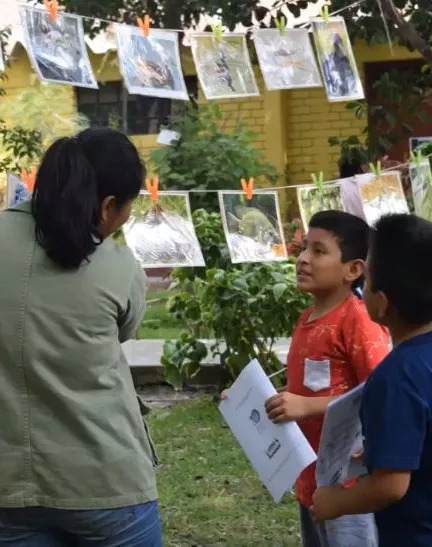
Priyanka Sarkar
Instagram: priyanka_sarkar1 | Twitter: @Priyank_Sarkar
Priyanka is a young researcher passionate about conservation and sustainable management of wetlands. Her research interest focuses on understanding how various ecological aspects of wetlands are related to socio-economic dimensions, livelihood sustenance, and human well-being, as well as investigating the carbon sequestration potential of wetlands. A researcher with more than seven years of work experience in inland wetlands, Priyanka has also worked in coastal wetland ecosystems in New Jersey and California, USA. Currently, she is finishing her Ph.D. from Assam University, Silchar, India, on the conservation of the Chatla floodplain wetlands in Assam, Northeast India from the ecosystem services perspective. As the 2019 SWS Wetland Ambassador at Drexel University in Pennsylvania, USA, she developed a project investigating the potential of biochar (a soil additive) in increasing carbon sequestration potential in wetland restoration projects. Priyanka is also a Graduate Research Associate in the Wetlands Ecology Department, Academy of Natural Sciences of Drexel University. Currently, she serves as Asia Lead at Youth Engaged in Wetlands (YEW) ‒ an international network to empower young people to support the mission of the Ramsar Convention on Wetlands. Priyanka has published several research papers in national and international journals related to her research interests. In the recent past, Priyanka received several scholarships to attend international conferences/workshops/summer schools held in Brazil, Germany, UK, and USA.
To her, wetlands are wonderlands! They are the ultimate biodiversity hotspots on Earth. Referred to as the 'Earth's kidneys' or 'nature's filter,' wetlands play a significant socioecological role in sustaining the livelihoods of rural populations, especially in developing nations. Despite the numerous benefits or ‘ecosystem services’ provided by wetlands, they continue to decline globally. In view of this, she is highly motivated to contribute to the protection and conservation of wetlands worldwide.
She loves traveling, exploring new places, meeting people, learning languages & new cultures, and trying out different cuisines.
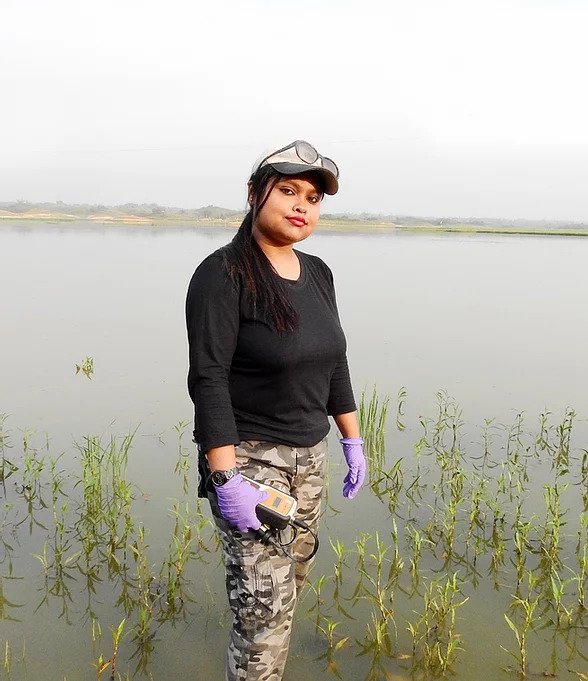
Whitney Sauskojus
Instagram: wetlands.whitney | Twitter: @wetlandswhitney
Whitney is an aspiring wetland scientist. She is working in a lab that studies aquatic ecology and environmental change, where they are currently working on a project that delves into ecosystem services of restored PPR wetlands as a function of restoration age. She is also working on an independent research project that is challenging the current methods that are being used to study wetland soil pH. She is graduating with a bachelor’s degree in Biological Sciences in the Fall of 2020 and is continuing her education working towards a master’s degree at North Dakota State University.
For Whitney, wetlands create a way to improve her mental health and provide an outlet for creativity and personal growth. They are also vital to a variety of cultures (food, religion, recreation), they provide habitat for a variety of bird species that she enjoys studying and they provide flood protection (which is especially important in the area where she lives). Wetlands create these incredibly diverse communities that are complex, intriguing and beautiful. Water is life.
In Whitney's spare time, she's typically playing video games, watching anime, writing in her journal, or going to see live music. She enjoys art, traveling and anything science related. Her favorite destination that she's visited so far is Japan. She has been volunteering at a cat rescue for over 6 years.
Throughout her year of service, she hopes to inspire others through the interconnection between the natural world and the arts.
The background of her word cloud is a small watercolor painting done by Marija Tiurina, an artist that she enjoys. These cut-out characters were placed throughout a Lithuanian forest. Which is ironically where some on her ancestors immigrated from and where her last name originates
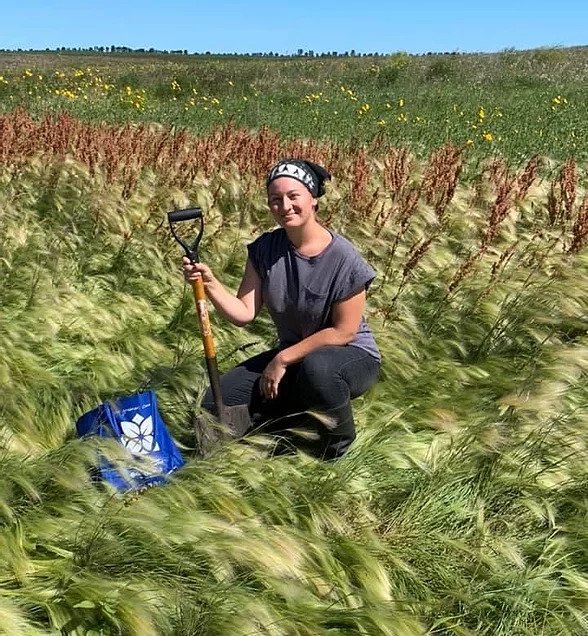
Jess Turner
Twitter: @definearth
Jess Turner is a first-year PhD student and NSF GRFP Fellow studying Freshwater & Marine Science at the University of Wisconsin-Madison! Her research in the Department of Atmospheric & Oceanic Sciences focuses on wetland gas exchange. Although much of her work is remote and involves lots of coding in MATLAB, she loves spending time outdoors or doing fieldwork whenever possible.
Jess believes wetlands are important because they are havens for unique species like Sandhill cranes and pitcher plants in the northern US, but wetlands are also home to loads of microorganisms that can have an impact on the very air we breathe. Wetlands make up an important piece of the global carbon and water cycle. She is also interested in the cultural value of wetlands and their potential as a solution for climate adaptation.
In her free time Jess enjoys listening to the podcast "Spirits" and hanging out with her cat, Haku!
(Any opinions, findings, and conclusions/recommendations expressed in this material are those of the author and do not necessarily reflect the views of NSF)
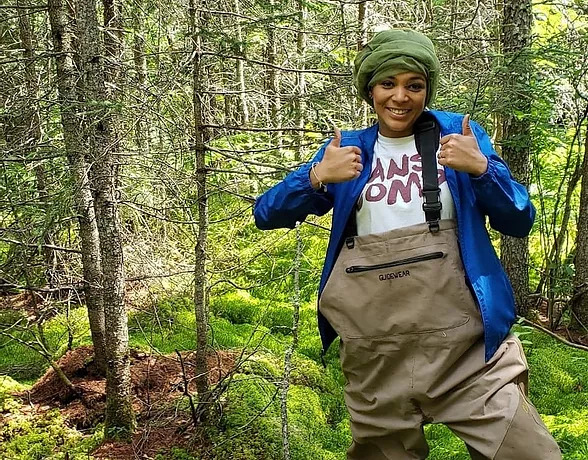
Stephanie Verhulst
Instagram: stephverhulst
Stephanie is a fourth year PhD student at the University of Florida studying coastal ecology. Her path has always followed her charted course of environmental conservation. She started her path at the University of Wisconsin-Madison earning a BS in Wildlife Ecology. This led her to environmental consulting in the Central Valley of California where she enjoyed working on endangered species conservation. Stephanie realized she needed a lush, green landscape and relocated to Jacksonville, FL to start graduate school at the University of North Florida. She earned her MS in Biology studying eutrophication impacts on epiphytic algal communities in salt marshes. This was Stephanie’s first exposure to salt marshes and when she discovered her passion for coastal ecology. Stephanie’s PhD research focuses on coastal plant community responses to environmental stressors (flooding, salinity, and invasive species). Over the past 3 years, she has assessed salt marsh and coastal forest plant productivity and growth, physiological responses, and coastal forest regeneration for indicators of potential vegetation die-off. Her goal is to provide tools to inform and assist in coastal land management."
Wetlands have many different forms ranging from bogs in northern Wisconsin to coastal salt marshes in Florida and everything in between. Wetlands serve as vital habitat to numerous animal species for refuge, migratory stopovers, breeding grounds, and nurseries. We also depend on wetlands as nature’s water purifier and sponge. The sounds of frogs croaking in marshes before a rainstorm and the picturesque view of steam rising from water on a cool fall morning, wetlands add natural beauty to our landscape.
Stephanie enjoys anything outdoors. She is an avid birder having her binoculars on hikes, canoe trips, and even at the kitchen table. Her love of birding began while surveying (and being dive-bombed by!) grassland birds. Stephanie spends countless early morning hours running and biking. This has taken her to other states and countries to compete in races. She will be adding triathlons to the mix of endurance challenges. She also has her husband, two children, and three goats keeping her busy.
